Words have magical power. These meaningful nuggets of vibration made of a mixture of consonants and vowels allow us to express and communicate our experiences and emotions. In this article, we have compiled 32 such words, all lovely, unique and very uncommon, sourced from various languages, that give meaning to the numerous transient and unspoken thoughts, ideas and feelings we experience on a daily basis. These expressions make us pay attention to many such overlooked things in our life that actually enrich our souls, so don’t forget to include them in your vocabulary.

Fun Activity: Pick 5 expressions that resonate with your inner voice, write them down, memorize them, and start using them as a part of your regular vocabulary. You will definitely sound more interesting and thoughtful.
32 Expressions You Should Have in Your Vocabulary
1. Sophrosyne
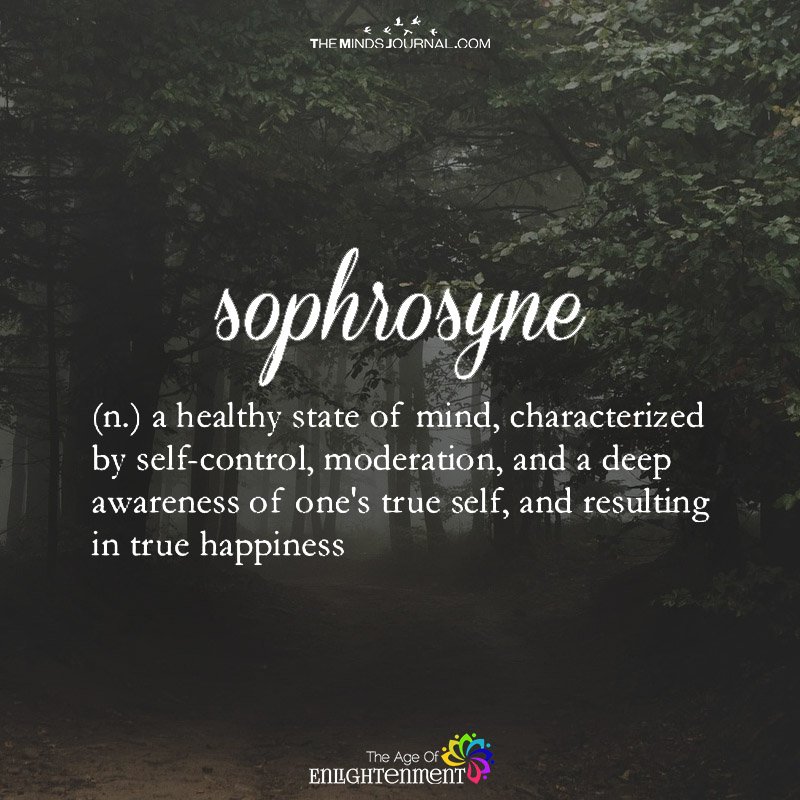
Sophrosyne (n.) is a term originating in Greek philosophy, which is characterized by healthy-mindedness, balance, self-control and moderation; one is guided by knowledge and is in sync with their real nature, which in turn results in true happiness in life.
Pronunciation | “so-frO-‘sU-nA
Note: To all those who are thinking “I want to reach that level” and also to all those who are thinking “Probably I’ll never get there”, let me tell you that you will! Even if it feels like a battle, keep fighting; have faith in yourself because you are strong and good, and your happiness is valuable.
Read 70 Rumi Quotes That Will Help You Understand Life Better
2. Vorfreude
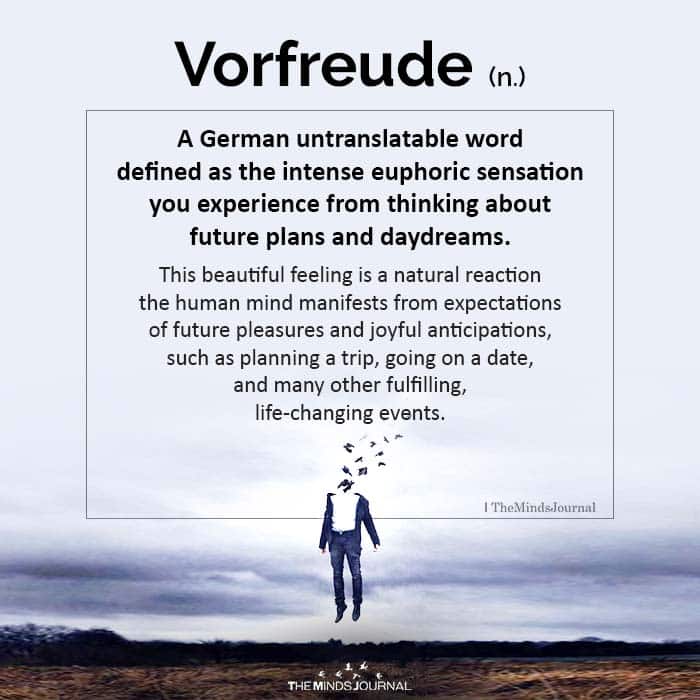
Vorfreude (n.) is an intense feeling of joy that one experiences when anticipating future pleasures and happiness; it is the delight one feels when looking forward to something.
Pronunciation | ‘for-froi-duh
3. Numinous
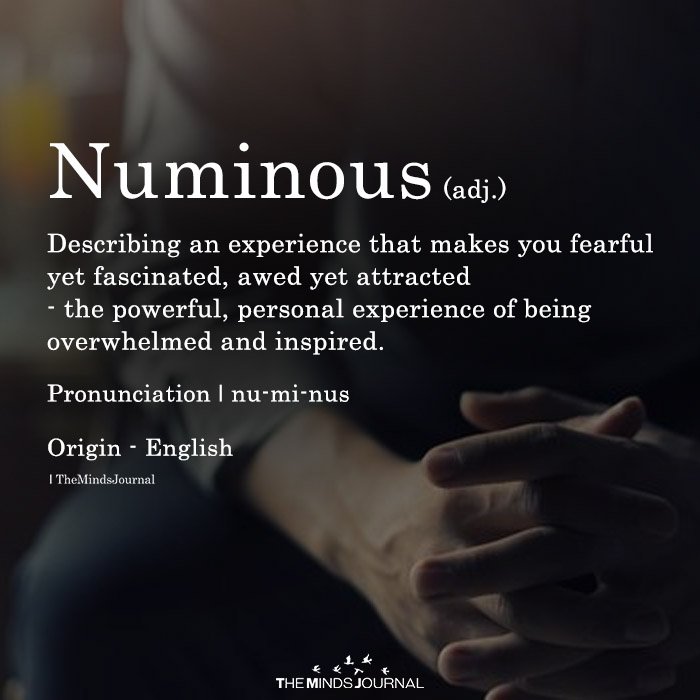
Numinous (adj.) describes any experience that has a strong divine quality, which makes us fascinated yet fearful, awestruck yet enchanted- it evokes the powerful emotions of being overwhelmed and influenced.
Note: The word has a religious origin, but it can be used for both natural experiences and supernatural experiences. It can also mean “having a strong religious or spiritual quality”.
4. Nemophilist
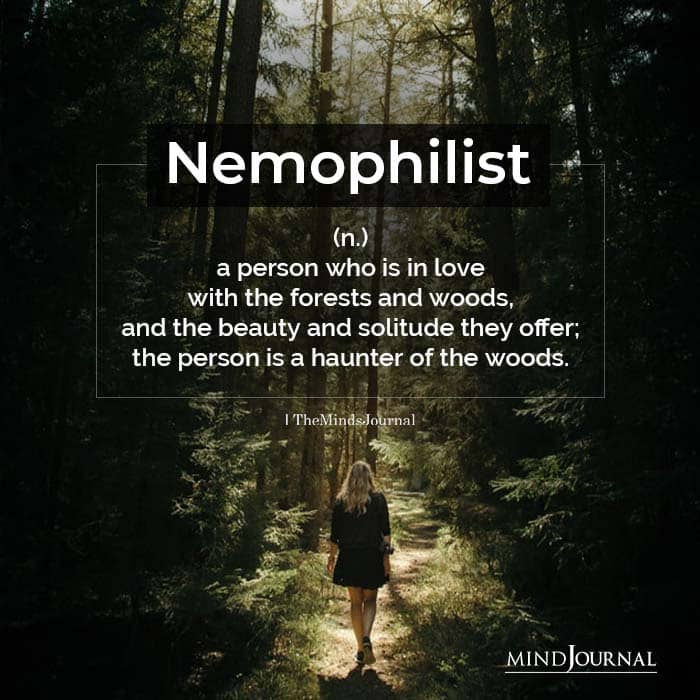
Nemophilist (n.) is a person who is in love with the forests and woods, and the beauty and solitude they offer; the person is a haunter of the woods.
Pronunciation | ne-‘mo-fe-list
5. Sillage
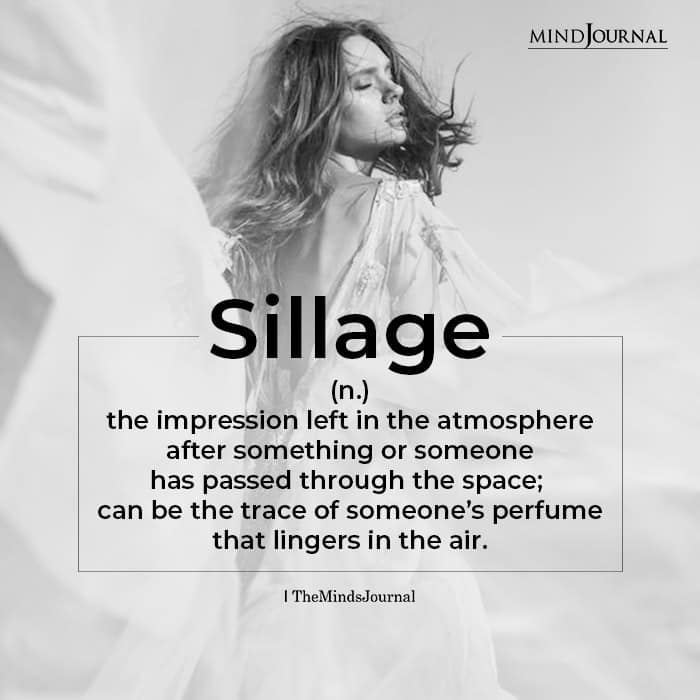
Sillage (n.), the French word for ‘wake’, meaning a trail of disturbed water left by the passage of a boat, broadly means the impression left in the atmosphere after something or someone has passed through the space; can be the trace of someone’s perfume that lingers in the air, the trail left in water and air, etc.
Pronunciation | ‘sE-yazh
Note: Sillage is a tern used in perfumery to indicate the degree to which a perfume smell lingers when worn on your skin; a perfume with light sillage does not linger much in the air. Also, don’t confused it with silage (sy-ladzh), which is a type of food for cows.
6. Erlebnisse

Erlebnisse (n.) stand for those experiences that make us feel most deeply and leave a profound impression on us, can be positive or negative, but they make us truly feel alive.
singular: Erlebnis
Pronunciation | Ar-‘lEb-nis-e (ayr-LEEB-nis-eh)
7. Koyaanisqatsi

Koyaanisqasti (n.) means a life that is totally out of balance; a nature that is so unbalanced that one desperately needs a new way of life.
Pronunciation | koy-an-Es-kot-sA
8. Meliorism
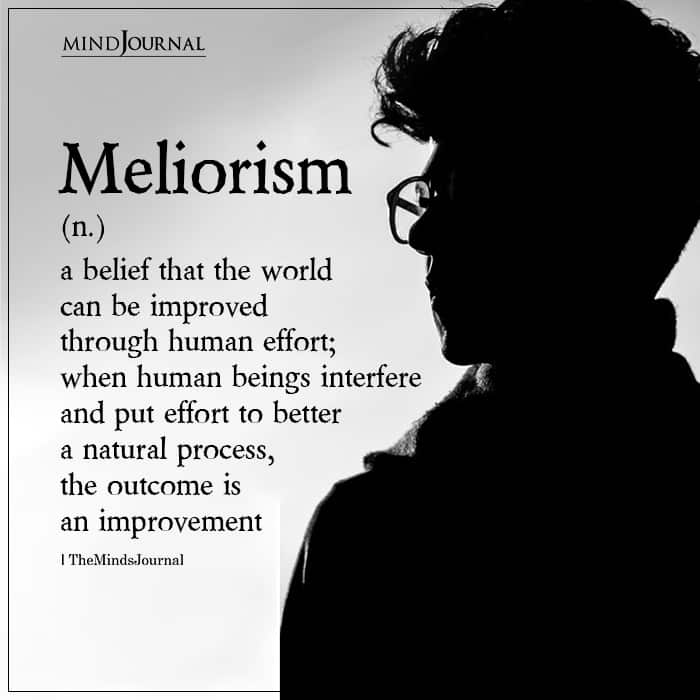
Meliorism (n.) is a belief that the world can be improved through human effort; it holds that when human beings interfere and put effort to better a natural process, the outcome is an improvement over the previous, natural one.
Pronunciation | ‘mE-lE-or-iz-m
9. Fernweh
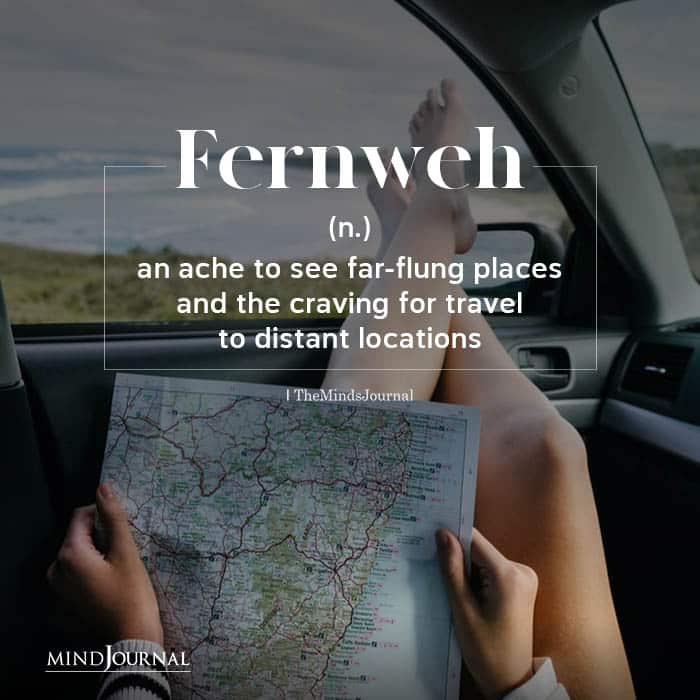
Fernweh (n.) is an ache to see far-flung places and the craving for travel to distant locations beyond our doorstep.
Pronunciation | FEIRN-veyh, with fei as in feint
10. Ostranenie
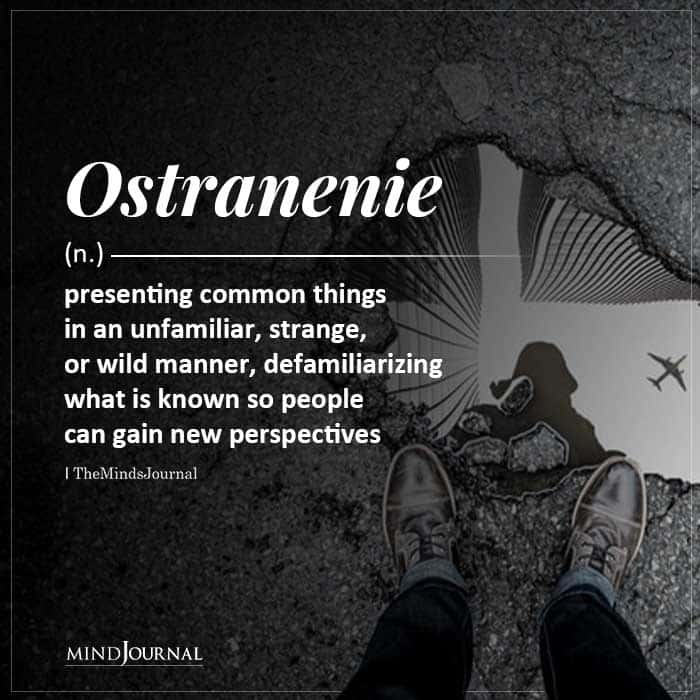
Ostranenie (n.) is an artistic technique of presenting common things in an unfamiliar, strange, or wild manner, defamiliarizing what is known so people can gain new perspectives and see things in a different light and more deeply.
Note: generally used as an art term
Russian | остранение
11. Smultronställe
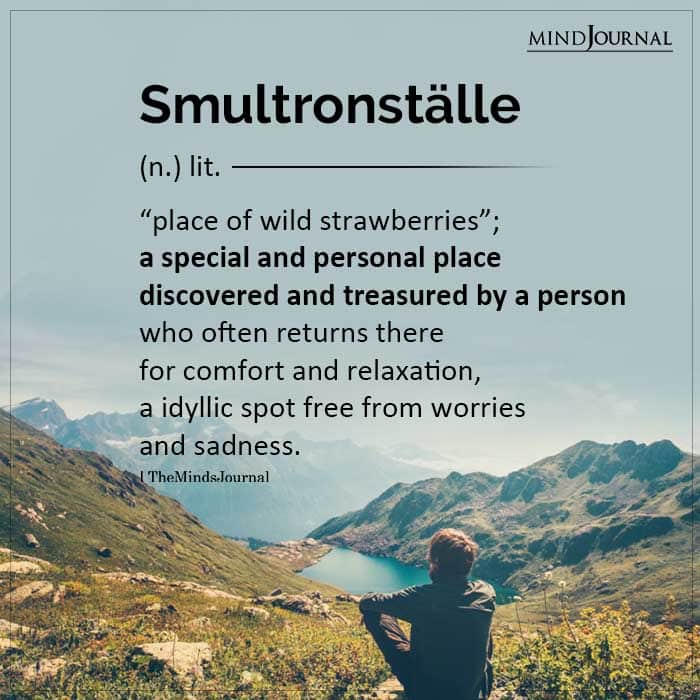
Smultronställe (n.) lit. “place of wild strawberries”; it denotes a special and personal place discovered and treasured by a person who often returns there for comfort and relaxation, a idyllic spot free from worries and sadness.
Pronunciation: “smUl-tron-‘stel-e
Read 25 Power Packed Words Of Wisdom By The Legendary Hero Bruce Lee
12. Mamihlapinatapai
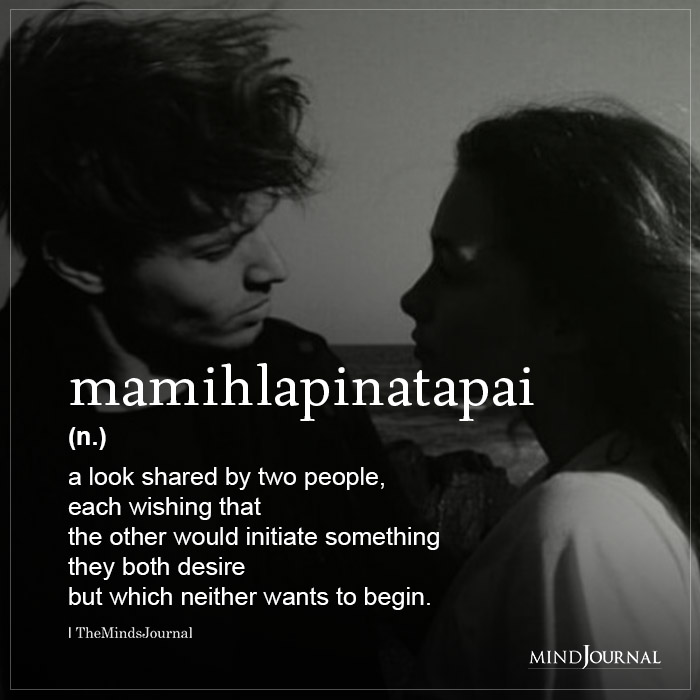
Mamihlapinatapai (n.), originating in the near-extinct Yaghan language, denotes a glance shared by two people, where each party hope that the other will initiate something that both of them wish to be done but neither are willing to begin.
Pronunciation: ma-mE-la-pin-ya-ta-pI
13. Rasasvada
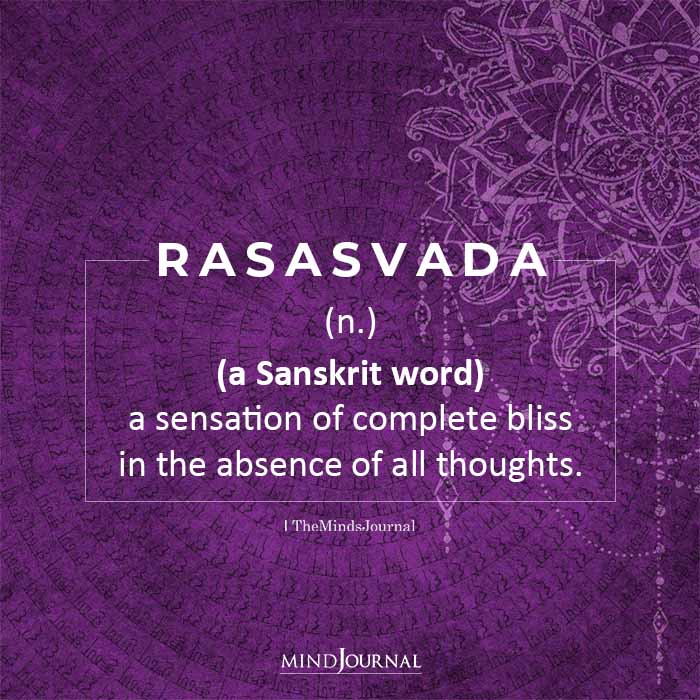
Rasasvada (rusaasvaad) (n.) a Sanskrit word used to indicate a sensation of complete bliss in the absence of all thoughts.
Pronunciation | ‘ra-sas-“va-da
14. Acatalepsy

Acatalepsy (n.) is the impossibility of fully comprehending the universe; it represents the belief that human knowledge amounts only to probability and one can never have true certainty.
Pronunciation | a-‘cat-a-lep-sE
15. Weltanschauung

Weltanschauung (n.) literally means “world view”; personal philosophy of an individual or group on the human life, world woes, and the universe.
Pronunciation | wElt’-An-sh-au-“unG
16. Hiraeth

Hiraeth (n.) is a Welsh word for homesickness, or earnest longing for something, especially for a home that one cannot return to; the nostalgia, and deep, irrational longing for a lost place or time of one’s past.
Pronunciation | ‘hEr-rIth (HEER-eyeth, with a fast heer and a soft th)
17. Nefelibata

Nefelibata (n.) lit. “cloud-walker” or “daydreamer”; denotes a creative person who dwells in the ‘clouds’ of their own dreams and imagination, or an eccentric person who doesn’t follow societal conventions, and the rules of art and literature.
18. Firgun

Firgun (n.) is a modern, informal Hebrew term used in Israeli culture which means feeling delight and pride, with a purely unselfish heart, without any jealousy, about another person’s pleasures and good fortunes; feeling generous and contributing to another person’s accomplishments; or fairly sharing credit.
Pronunciation | fEr-‘gOn
Hebrew script | פירגון
19. Metanoia
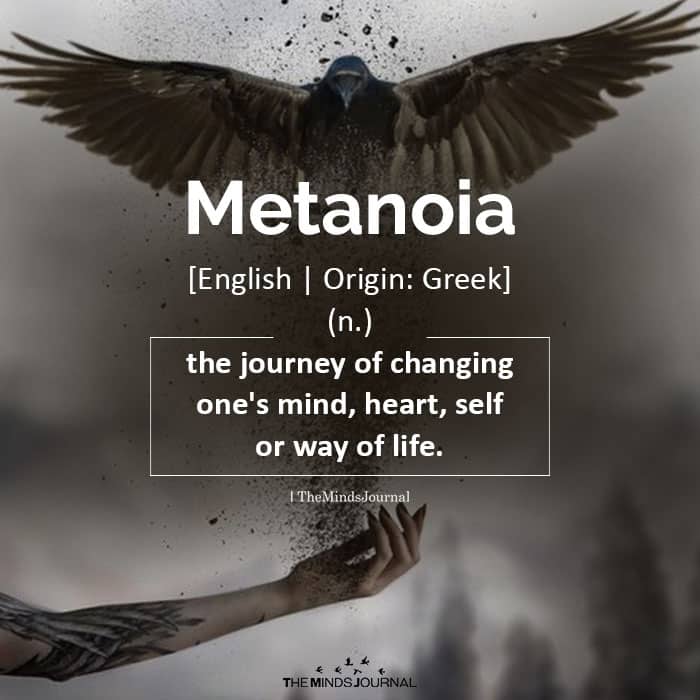
Metanoia (n.) denotes the journey of fundamentally changing one’s mind, views, opinions, heart, character, lifestyle, and overall self; spiritual conversion.
Pronunciation | (meh-tah-NOY-ah)
20. Dérive

Dérive (n.) lit. “drift”; a journey where a traveler spontaneously forgets about their life for a while in order to feel and absorb the vibe of the landscape, art and architecture surrounding them and be moved.
Pronunciation | de-‘rEv
21. Orenda
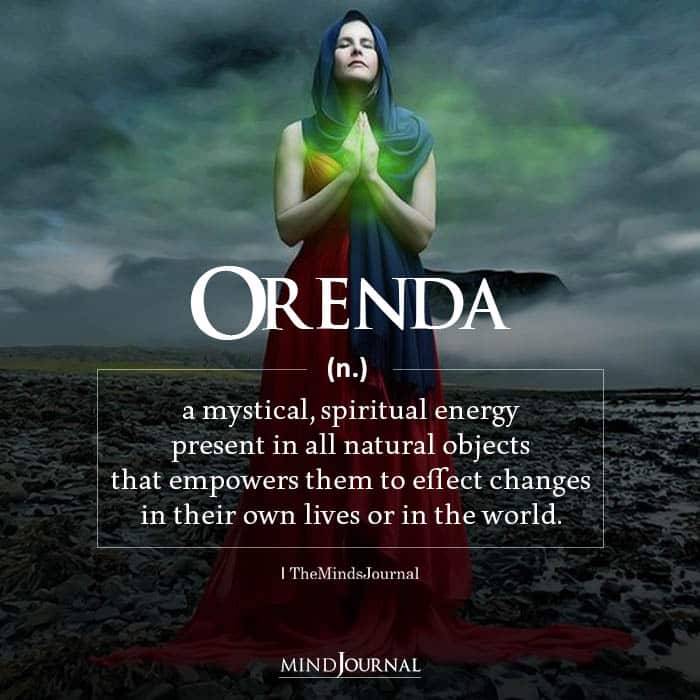
Orenda (n.) a mystical, spiritual energy present in all natural objects that empowers them to effect changes in their own lives or in the world.
Pronunciation | or-en-da
22. Sehnsucht

Sehnsucht (n.) is the inconsolable yearning in the human heart for something we ourselves can’t define clearly; a strong craving for a place familiar but far and non-earthly, which one thinks of as their home.
Pronunciation | zEn-‘zUkt
Read 40+ Beautiful Anais Nin Quotes That Will Make You Think
23. Tsundoko

Tsundoko (n.) denotes acquiring books and other reading materials but not reading them, instead letting them pile up in your home on shelves, floors and nightstands.
Pronunciation | tsUn-dO-kU (tsoon-doh-koo)
Japanese script | 積ん読 kanji, つんどく hiragana
24. Gezellig
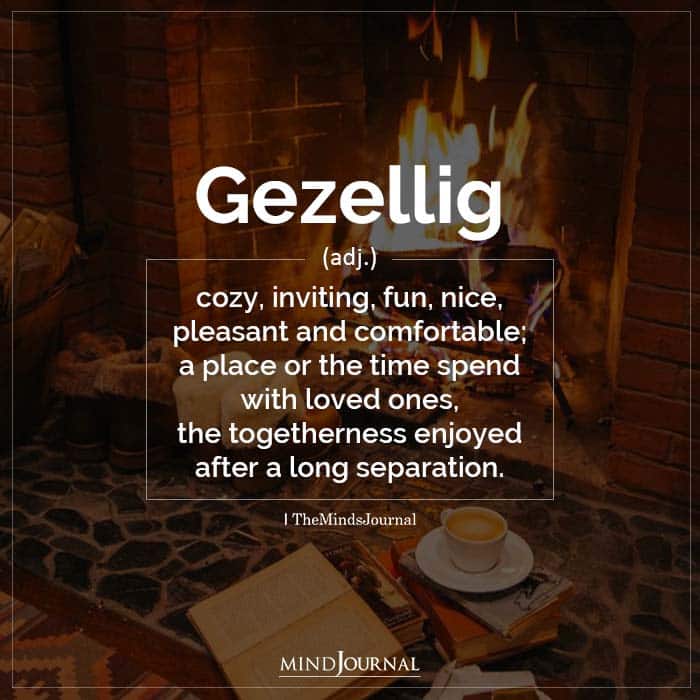
Gezellig (adj.) is a famous word in the Dutch culture that includes everything from cozy, inviting, fun, nice, pleasant and comfortable; it can be used for a place or the time spend with loved ones or can denote the togetherness enjoyed after a long separation.
pronunciation | heh-SELL-ick.
25. Cafuné
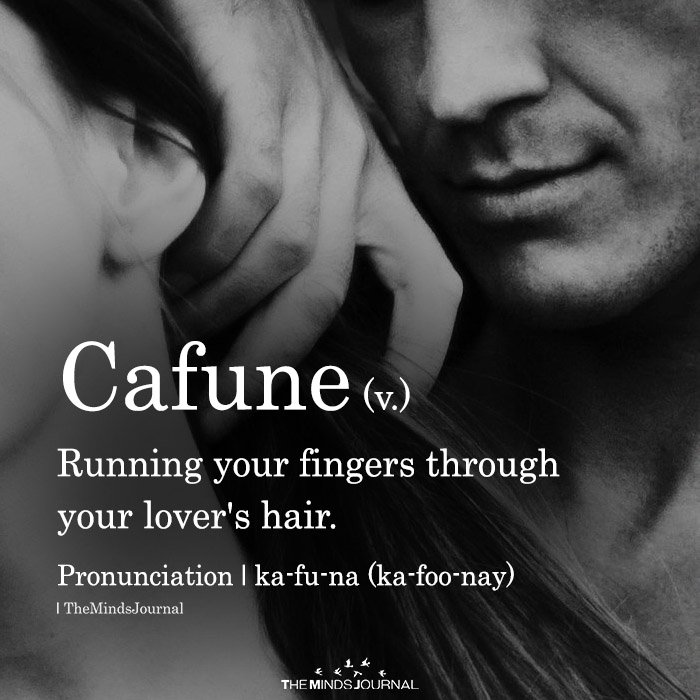
Cafuné (v.) is the act of tenderly running one’s fingers through your lover’s hair.
Note: This term can be applied to a lover as well as a pet.
26. Mono-No-Aware
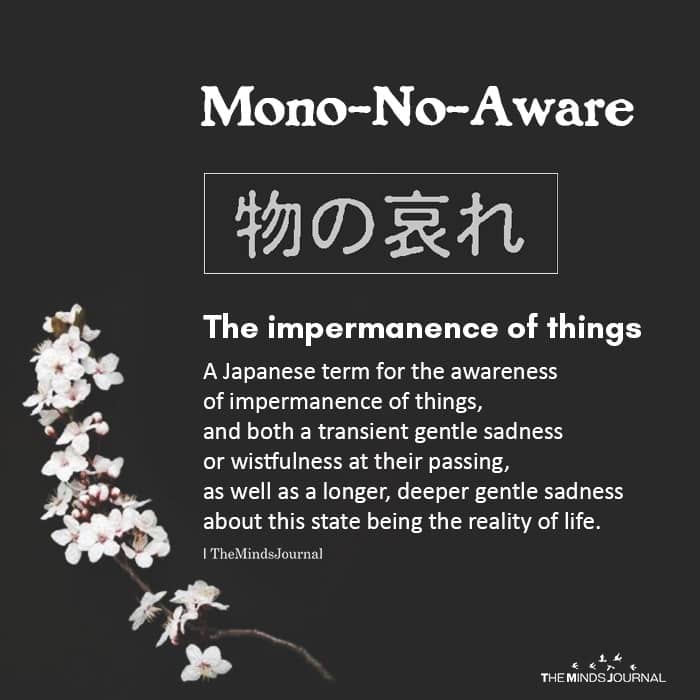
Mono-No-Aware is a Japanese term which refers to the realization about the impermanence or the transient nature of everything, and feeling a bittersweet, gentle sadness and witfulness at their passing, and a deeper understanding of the reality of life.
27. Cherophobia
Cherophobia (n.) is the irrational fear of being too happy because they are scared that something tragic will happen to them soon.
28. Jayus

Jayus (n.) is a joke that is so bad, lacking in humor and poorly told that you can’t stop yourself from laughing.
29. Flaneur
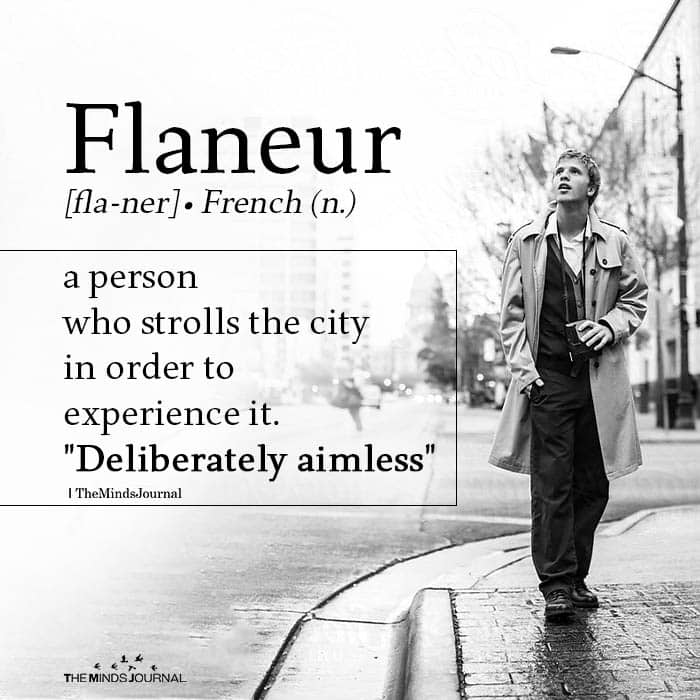
Flaneur (n.) is a French word for a person who strolls through the city to experience the vibe of the place; “deliberately aimless”.
Pronunciation | fla – ner
30. Eccedentesiast

Eccedentesiast (n.) is a person who usually hides pain and suffering behind their smile.
31. Eunoia
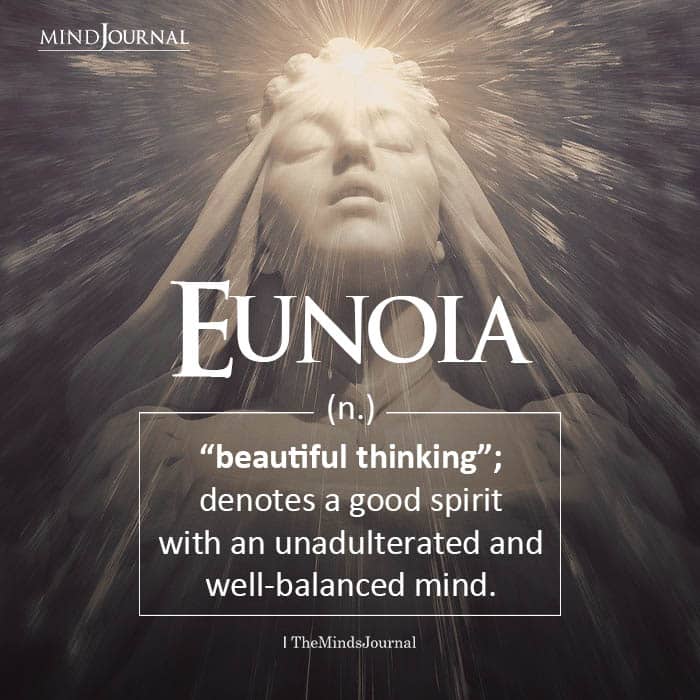
Eunoia (n.) is a word of Greek origin meaning “beautiful thinking”; denotes a good spirit with an unadulterated and well-balanced mind.
32. Wabi-sabi
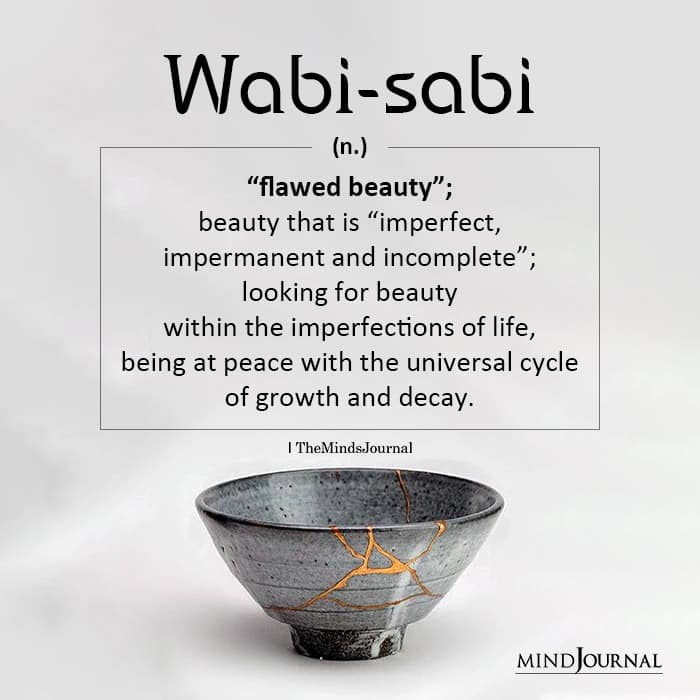
Wabi-sabi (n.) is a concept in Japanese aesthetics that focuses on “flawed beauty”; a worldview that emphasizes that beauty is “imperfect, impermanent and incomplete”; focuses on looking for beauty within the imperfections of life, and being at peace with the universal cycle of growth and decay.
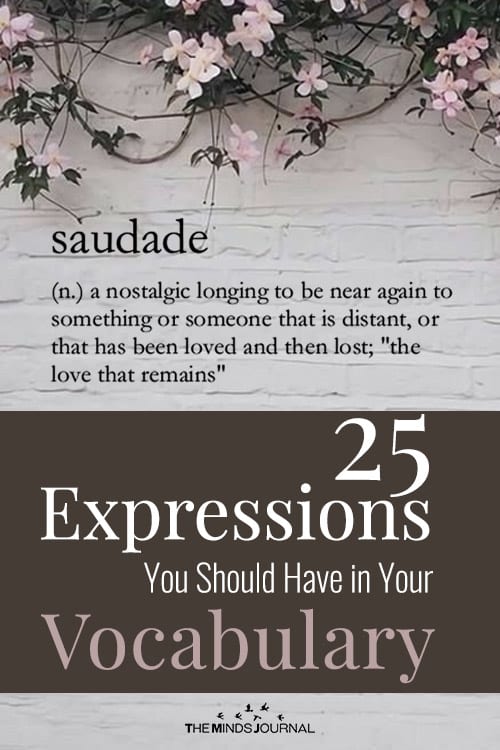


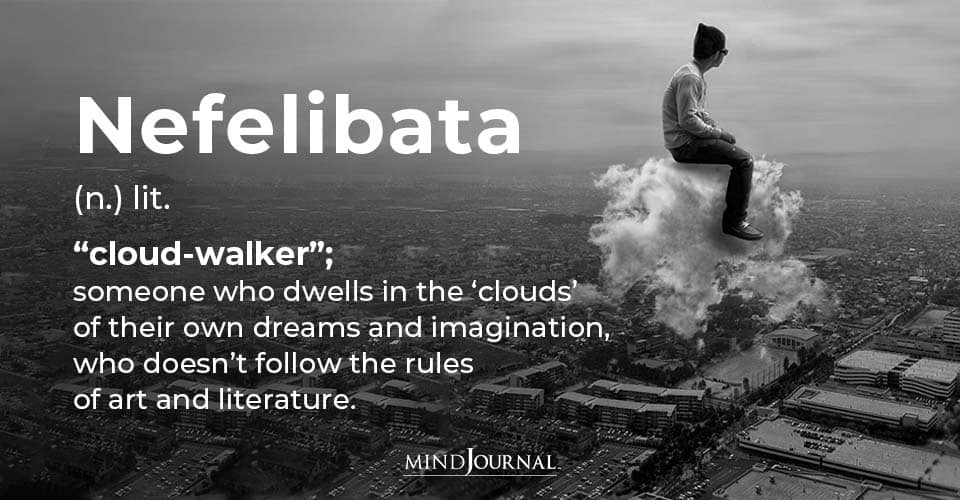





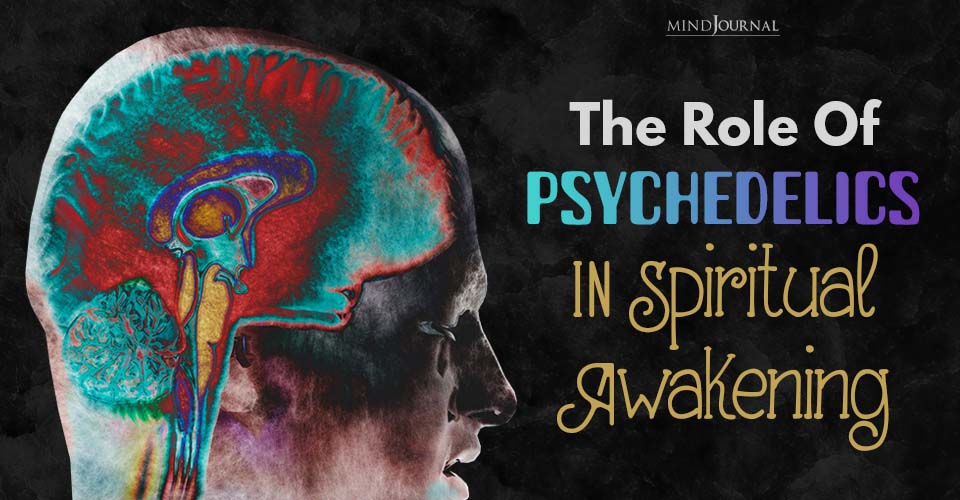

Leave a Reply